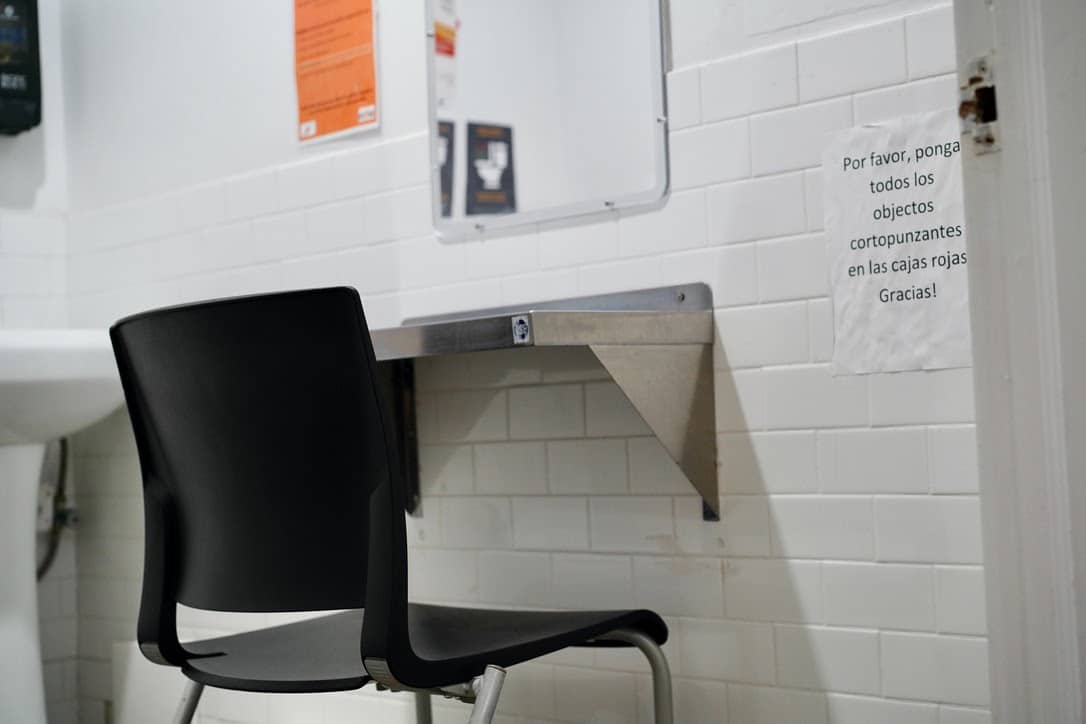A New York State Assembly committee has voted to advance legislation that would authorize safe consumption sites (SCS) across the state. But time is running out in the current legislative session, which ends June 2. If the state Senate doesn’t similarly advance its version of the bill soon, the Safer Consumption Services Act (SCSA) likely won’t reappear before the legislature until 2023.
The Assembly Health Committee received Bill A224 in January, but didn’t approve it until May 10, sending it forward to the Assembly Codes Committee with just three weeks remaining in the 2022 session. State Senator Gustavo Rivera (D), who sponsors Senate Bill S603, has indicated he doesn’t yet have the support needed to advance the bill alongside its Assembly counterpart.
“This is not a slam dunk, it’s not a given,” Rivera told Filter. “There’s many of my colleagues who still have a lot of questions, who are still operating under what I would call an old mentality.”
If not advanced through the legislature, the other pathway forward for SCS is pressuring the New York State Department of Health to sign off on them directly. Governor Kathy Hochul, however, has so far declined to take a stronger position on the issue.
“We are convinced this can be done by executive action,” Rivera said. “I’ve had conversations with the Governor about it … but she’s not there yet. We’re working to convince her.”
More than 5,700 people are estimated to have died of overdose across New York in 2021. Over half those deaths occurred outside of New York City.
“SCS save lives, bottom line. This would be an enormous thing.”
In November 2021, shortly after the departure of former Governor Andrew Cuomo, New York City began operating the first authorized SCS in the United States, giving people who inject state-banned drugs a safe place to do so. In addition to being access points for public health supplies like sterile syringes, SCS have trained staff on hand to administer naloxone or supplemental oxygen when needed. OnPoint NYC’s two locations, in East Harlem and Washington Heights, were accessed thousands of times and averted dozens of overdoses within a matter of weeks. The two sites have averted at least 291 overdoses as of publication time.
Close to 200 authorized SCS of different kinds operate in 14 countries around the world. No one has ever died of overdose at any of them.
Under the bills comprising the SCSA, qualifying syringe service programs wishing to open an SCS would have to demonstrate that they have the hygienic space and sufficient staffing to operate such a site—and that, in addition to sterile syringes and other supplies, they will offer participants services like blood-borne disease testing and referrals to substance use disorder treatment, employment and health care. The Health Department would have to approve or reject applications within 45 days. Participants, staff, volunteers and property owners at approved sites could not be prosecuted for activities related to SCS operations.
SCS “save lives, bottom line,” Rivera said. “This would be an enormous thing.”
Rhode Island approved an SCS pilot program in June 2021, and California has also laid groundwork to open authorized SCS.
Meanwhile, the Philadelphia nonprofit Safehouse continues its years-long battle to open an SCS without facing federal prosecution. Throughout this, the Biden administration has repeatedly delayed taking a public stance on SCS. After recent talks described as “productive,” the Department of Justice recently received its fourth deadline extension for the case, requiring it to file a response by June 23.
Photograph of New York City safe consumption site by Helen Redmond





Show Comments